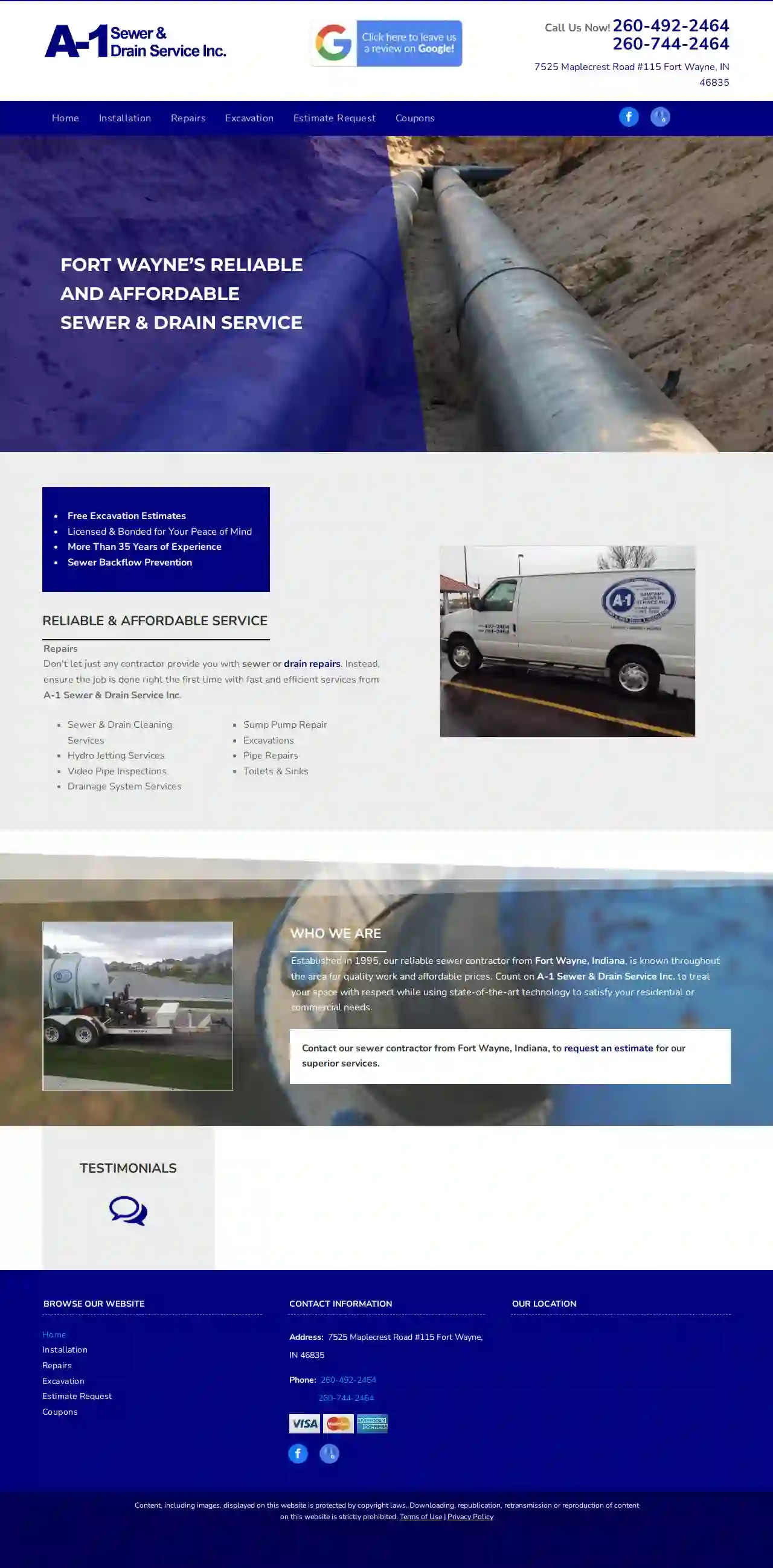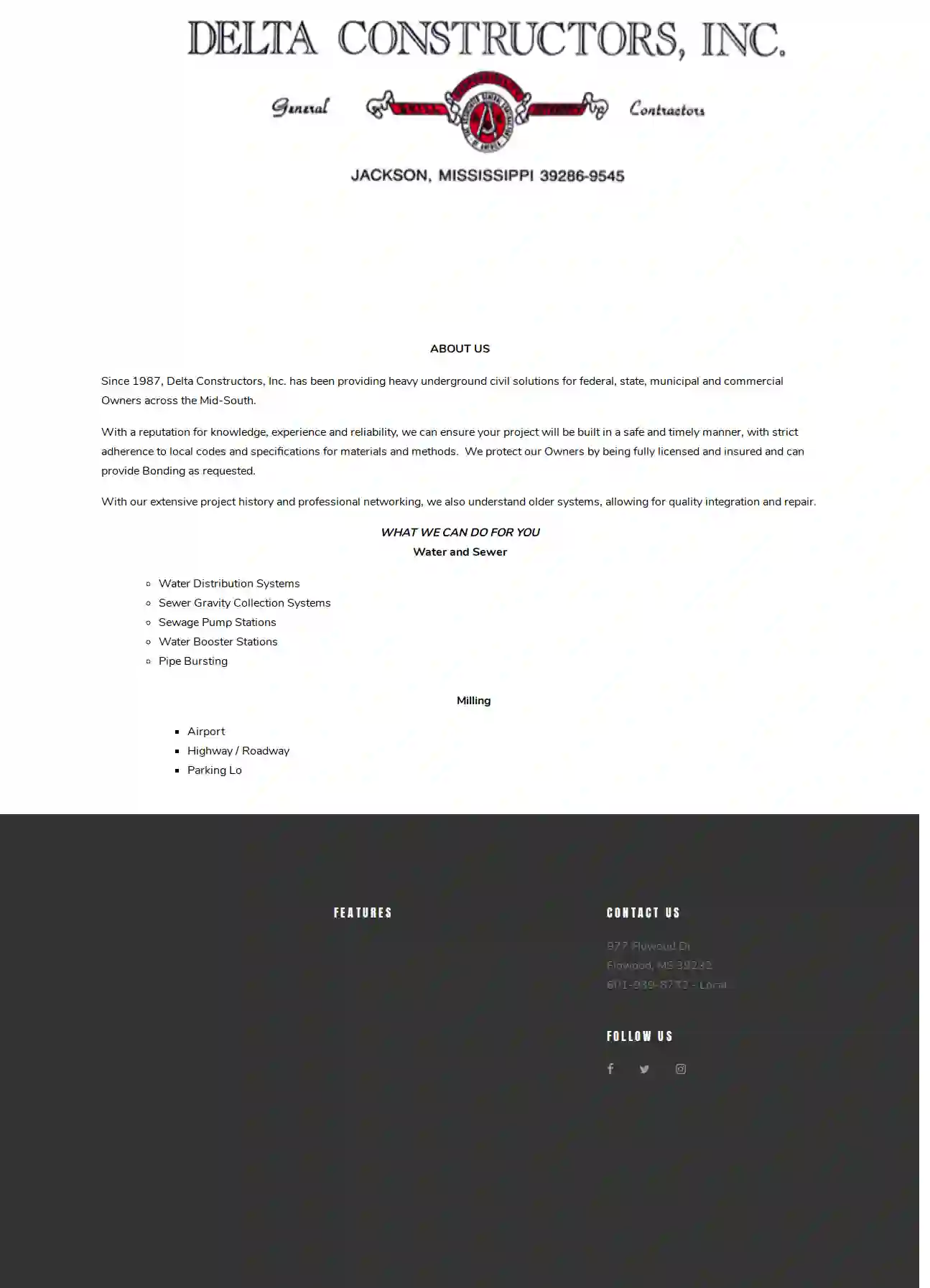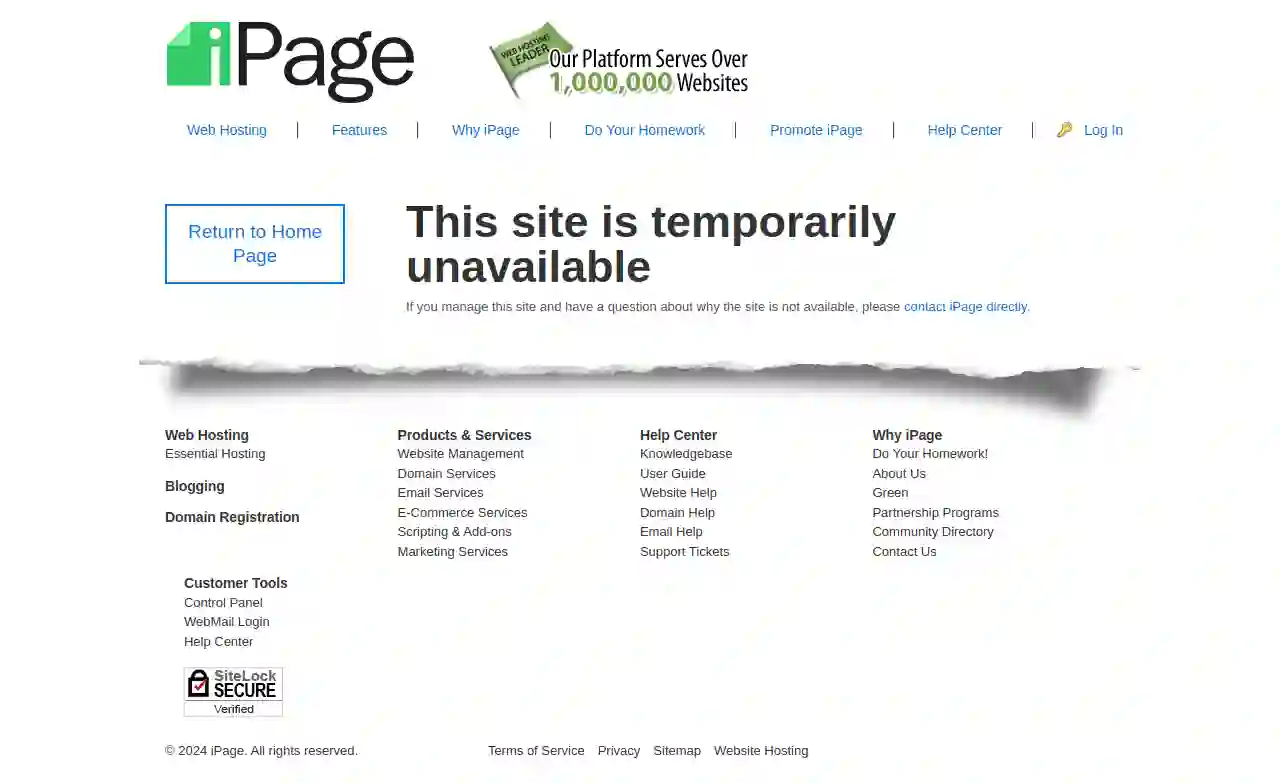Excavation Contractors Linwood
Find Land Excavation in Linwood
Receive 3 FREE Excavation Services quotes for your project today! Compare profiles, reviews, accreditations, portfolio, etc... and choose the best deal.

Fox Contractors Corp
4.618 reviews5430 W. Ferguson Road, Fort Wayne, 46809, USWe can dig it. To get a job done right, you need to start with someone who really knows what they’re doing. That’s Fox Contractors. Decades of laying the groundwork Since 1948, we’ve been behind projects in and around Indiana that require specialized support with earthmoving and underground utilities. Our expertise can be found on jobs that range from heavy highway and public works to commercial and industrial site development. View Our Certifications Minority Business Enterprise Indiana Veteran Owned Small Business Enterprise Veteran Owned Business After more than 70 years in business, we’ve built a reputation for impeccable work that’s done on time and on budget. That, along with our fair pricing and highly skilled, safety-conscious workforce make us the first choice for project managers who are looking for a reliable partner. Our clients include DOTs, municipalities, general contractors and developers, and we have experience in the healthcare, education and environmental fields. Fox Contractors is proud to be a certified Minority Business Enterprise (MBE) and a 100% signatory contractor with the IUOE, Teamsters and Laborers’ unions. With a headquarters in Fort Wayne and a regional office near Indianapolis, Fox Contractors serves customers across the region and is prequalified with the Indiana, Michigan and Ohio Departments of Transportation. We take care of business – from the ground up. ”Fox places a high value on safety because our people are our #1 asset. We strive to minimize or eliminate hazards all together, so that all employees can work in a safe environment, without losing time. Our safety-first approach is reflected in our extensive training and education, as well as an employee safety commitment that starts from the top down.” Dallas Day, Owner, Fox Contractors Corp.
- Services
- Why Us?
- Testimonials
- Gallery
Get Quote
Pasha Construction
275 Route 10 East Suite 220-416, Succasunna, 08786, USAbout Us Pasha Construction has been providing multidiscipline services to our Clients from our early beginnings. It has been our vast experience in all kinds of projects that have helped us find the right combination of services. As such our company is structured to provide our Clients with the services they need from early planning to final design and construction. Our corporate structure allows us to combine our resources in multiple disciplines and experience and licensed professionals, to help make your projects a reality and to deliver the projects on time and on budget. Licensed Professionals Professional Engineers Professional Architects Professional Planners Professional Land Surveyors Certified Landscape Architects Certified Professional Traffic Operations Engineers Certified Environmental Scientists Professional Geologists Certified Environmental Managers Certified Environmental Inspectors Represented Disciplines Construction Architectural Transportation Structural Civil Environmental Traffic Municipal Mechanical Site Representative Projects Construction Phase Services Architectural Designs Highway, bridge and Traffic Engineering Transportation Planning Environmental Impact assessment and Analysis Natural Resource Management Environmental Engineering Stormwater Management Land use Planning Real Estate Planning and Appraisals Master Planning Site Planning and Design Park and Recreational Facility Planning and Design Urban and Regional Planning Landscape Architecture Zoning Ordinance Preparation Software Capabilities Sewer CAD & Water Cad Microsoft Excel AutoCAD / Land Desktop Arc View GIS Societies & Organizations American Society of Civil Engineers American Institute of Certified Planners American Planning Association Institute of Transportation Engineers National Society of Professional Engineers New Jersey Society of Municipal Engineers Professional Services Pasha Construction realizes that the success of a project depends upon early planning and continual project monitoring. From initial concept and real-estate planning to final project completion, Pasha Construction is committed to providing the personnel and corporate resources required for the successful completion of the project. You can rely on our expertise and vast knowledge and experience in all types of Construction projects. Our staff is also capable of obtaining all Environmental permits from Federal, State and local government such as Flood Hazard Area, Freshwater Wetlands, Zoning and Planning Board approvals. Our goal is to make your project a success and a reality. We accomplish this by listening to the needs and goals of our clients and then providing them the knowledge and support of our professional services to guide them through all phases of the project to final approval and delivery. Total Client Service Concept At Pasha Construction, we have eliminated the need for our clients to work with a variety of firms, since our staff capabilities encompass the full range of expertise. This enables us to provide professional services for all phases of the project, in turn saving our Clients time and money. We’re thorough and efficient because we know future projects depend on getting today’s projects done on time and within budget. As part of our Total Client Service Concept, we will develop a schedule for all our projects to monitor and constantly update the project’s status so that our team members meet all milestones, deadlines and project budget in an expeditious and cost conscious manner. Our commitment to scheduling and budgeting, coupled with our multi-disciplined staff, well trained experts and advanced technical experience, will allow an immediate and timely response to our clients’ needs. We have the experience, personnel, and resources available and are ready to meet all challenges.
- Services
- Why Us?
- Gallery
Get Quote
Del Casale Excavating
511 reviews1000 County Route 106, Clifton Park, 12180, USDel Casale Excavating: Your Trusted Partner for Excavation Services Del Casale Excavating is a family-owned and operated business with over 20 years of experience in the excavation industry. We are committed to providing our clients with high-quality, reliable, and affordable services. Our team of experienced professionals is dedicated to exceeding your expectations and delivering exceptional results. We understand that every project is unique, and we take the time to listen to your needs and develop a customized plan that meets your specific requirements. Whether you need site preparation, foundation excavation, utility installation, or any other excavation service, we have the expertise and equipment to handle the job efficiently and effectively. At Del Casale Excavating, we are committed to safety and environmental responsibility. We use the latest technology and equipment to minimize our impact on the environment and ensure the safety of our workers and the public. Contact us today for a free consultation and let us help you bring your project to life.
- Services
- Why Us?
Get Quote
A-1 Sanitary Sewer & Drain Services
4.778 reviews7525 Maplecrest Road, #115, 7525 Maplecrest Road #115, Fort Wayne, 46835, USFORT WAYNE’S RELIABLE AND AFFORDABLE SEWER & DRAIN SERVICE A-1 Sewer & Drain Service Inc. is a trusted sewer and drain contractor serving Fort Wayne, Indiana. Established in 1995, we have over 35 years of experience providing quality services at affordable prices. We are committed to treating your space with respect and using state-of-the-art technology to meet your residential or commercial needs. We are licensed and bonded for your peace of mind. Contact us today for a free excavation estimate.
- Services
- Why Us?
- Testimonials
- Gallery
Get Quote
Delta Constructors, Inc.
4.610 reviews977 Flowood Dr, Flowood, 39232, USAbout Delta Constructors, Inc. Since 1987, Delta Constructors, Inc. has been providing heavy underground civil solutions for federal, state, municipal and commercial Owners across the Mid-South. With a reputation for knowledge, experience and reliability, we can ensure your project will be built in a safe and timely manner, with strict adherence to local codes and specifications for materials and methods. We protect our Owners by being fully licensed and insured and can provide Bonding as requested. With our extensive project history and professional networking, we also understand older systems, allowing for quality integration and repair.
- Services
- Why Us?
- Gallery
Get Quote
Nivek Earthworks LLC
58 reviews3831 Nantucket Dr., Fort Wayne, 46815, USAbout Us Nivek Earthworks LLC is a total site development company serving the greater Fort Wayne community and is owned and operated by Kevin Horgan and Jared Shelton. Not only do Jared and Kevin share a lifelong passion for the excavation industry, but they are also extremely passionate about customer service and take pride in going above and beyond for each of their clients. Together, Jared and Kevin have nearly two decades worth of experience in the construction industry, and have developed a strong skillset for moving dirt. They love what they do and are committed to continually producing exceptional excavation services for the members of the Fort Wayne community. Project Highlights “Often Imitated Never Duplicated” Ready to Start Your Next Project? It all begins with an idea. Whether you are a homeowner or a contractor, we would love to meet with you to discuss your next project. We are here to help during the planning stages of your project and can offer our expertise to determine the best approach, create schedules, and identify possible roadblocks that would normally lead to costly extras if discovered during the construction process. We always offer free estimates and include our detailed plan of the work to be completed. Give us a call or email us today to start the planning process on your next project.
- Services
- Why Us?
- Our Team
- Testimonials
- Gallery
Get Quote
Founders Contracting - Directional Drilling Company
Wayne, USiPage is a leading provider of web hosting and domain name services for both individuals and businesses. We offer a wide range of hosting plans to suit your needs, from basic shared hosting to powerful VPS and dedicated servers. Our services are designed to help you build and grow your online presence, with features like easy-to-use website builders, one-click installs for popular applications, and 24/7 customer support. We are committed to providing our customers with the best possible experience, and we are constantly innovating to improve our services. We are also proud to be a green company, committed to reducing our environmental impact. We believe in providing our customers with the best possible value, and we offer a variety of affordable hosting plans to fit your budget. We are confident that you will be satisfied with our services, and we encourage you to try us out today.
- Services
- Why Us?
- Gallery
Get Quote
Blackwater Draw Locality 1
4.556 reviews1500 S. Ave K, Lea Hall Room 163, Portales, 88130, USThe Blackwater Draw Museum seeks to foster preservation and education of the heritage of New Mexico, the Southern High Plains, and the greater Southwest through exhibitions, educational programs, collections, and research, while enriching and supporting the educational goals and mission of ENMU. The Blackwater Draw Museum is a small museum located on the campus of Eastern New Mexico University in Portales, New Mexico. The museum is home to a collection of artifacts from the Blackwater Draw National Historic Landmark, a site that has been inhabited by humans for over 13,500 years. The museum offers a variety of exhibits, educational programs, and research opportunities. Visitors can learn about the history of the Blackwater Draw site, the cultures that have lived there, and the archaeology of the region. The museum also has a collection of artifacts from the Casas Grandes culture, a prehistoric culture that flourished in the Southwest from about 1300 to 1450 AD. The museum is open to the public and offers a variety of tours and programs. The museum is a great place to learn about the history and culture of the Southwest. The Blackwater Draw Museum is a great place to learn about the history and culture of the Southwest. The museum offers a variety of exhibits, educational programs, and research opportunities. Visitors can learn about the history of the Blackwater Draw site, the cultures that have lived there, and the archaeology of the region. The museum also has a collection of artifacts from the Casas Grandes culture, a prehistoric culture that flourished in the Southwest from about 1300 to 1450 AD. The museum is open to the public and offers a variety of tours and programs.
- Services
- Why Us?
- Gallery
Get Quote
Custom Sheds Plus
52 reviews3008 Lower Huntington Road, Fort Wayne, 46809, USCUSTOM SHEDS PLUS She Shed, Tiny Home, Mancave, Lake Shed, Cigar/Bar Shed, Garden Shed, Tool Shed, Storage Shed, you dream it we can make it. Create your custom shed with us and turn your dream a reality! Call us to create your very own She Shed, Mancave, Lake Shed, Cigar/Bar Shed, Garden Shed, or Tool Shed! We build custom storage barns, play houses, or anything you can think of. You create it, we will build it! We also have pre-made inventory at 3 different lot locations that you can visit. Our goal is to provide a structure that exceeds your expectations!
- Services
- Why Us?
- Gallery
Get Quote
Bencardino Excavating Inc
54 reviews1423 Wells Drive, Bensalem, 19020, USGet the job done right with Bencardino Excavating! See How Bencardino Excavating Projects Are Setting The Standard... A long track record of successful projects, larger footprint excavating and sitework capabilities, competitive pricing, a commitment to working safely, and quality workmanship. When you hire Bencardino Excavating with our ability to handle all aspects of your sitework, and possessing decades of experience, you will keep your project on schedule and eliminate delays and change orders that are common when hiring multiple contractors for your project. An Excavating And Sitework Contractor You Can Count On... Bencardino Excavating has over thirty years of experience providing diversified, highly dependable excavating and sitework contracting for our clients in Philadelphia, and the Delaware Valley. As an excavating and sitework contractor, our capabilities allow us to handle all aspects of your project, large or small in a safe, professional, and organized way. Bencardino Excavating has a fleet of heavy-construction equipment, a team of over 140 professionals and the experience to see through any sitework project from start to finish. Our team will bring your project in on time and within budget. Bencardino’s capabilities include: demolition, clearing, excavation, grading, underground utility installation for fire, storm, water and sewer, concrete, paving and emergency services.
- Services
- Why Us?
- Gallery
Get Quote
Over 22,076+ Excavation Contractors onboarded
Our excavation pros operate in Linwood & beyond!
ExcavationHQ has curated and vetted Top Excavation Contractors in Linwood. Find the most reliable pro today.
Frequently Asked Questions About Excavation Contractors
- Soil Type and Stability: Stable, cohesive soils allow for deeper excavations than loose or unstable soils.
- Groundwater Level: Excavations below the water table require dewatering techniques to manage water intrusion.
- Equipment and Resources: The size and capabilities of excavation equipment influence the achievable depth.
- Safety Regulations: OSHA and other safety regulations impose limitations on trench depths without proper shoring or sloping.
- Project Requirements: The purpose of the excavation (basement, pool, foundation) determines the necessary depth.
- Basement Size: The larger the basement, the more excavation is required, increasing the cost.
- Soil Type: Excavating rocky or dense clay soil is generally more expensive than loose soil.
- Accessibility: Difficult-to-access sites might require specialized equipment or more labor, driving up costs.
- Foundation Type: The chosen foundation type (full basement, crawl space, slab) affects excavation needs.
- Underpinning: If underpinning (strengthening existing foundations) is necessary, it significantly increases costs.
- Disposal Fees: Hauling excavated soil to disposal sites adds to the overall expense.
- Spring and Fall: Often considered favorable due to moderate temperatures and drier soil conditions.
- Summer: Can be suitable, but hot weather can make working conditions challenging and might require additional measures (shade, hydration) for workers.
- Winter: Excavation in winter can be more difficult due to frozen ground, snow, and potential delays caused by inclement weather. It might also require specialized equipment or techniques.
- Clearly Define the Scope: Outline the project's goals, including the excavation area, depth, grade, and intended use.
- Obtain Necessary Permits: Research and acquire any required permits from your local authorities.
- Mark Utility Lines: Contact your utility companies to locate and mark underground utilities to prevent damage.
- Communicate with Neighbors: Inform your neighbors about the project's timeline and potential noise or disruptions.
- Prepare the Site: Clear any obstacles, such as vegetation, furniture, or structures, from the excavation area.
- Discuss Safety Protocols: Review safety procedures with the contractor to ensure a safe work environment.
How deep can you excavate?
How much does it cost to excavate a basement?
What is the best time of year for excavation?
What should I do before excavation starts?
How deep can you excavate?
- Soil Type and Stability: Stable, cohesive soils allow for deeper excavations than loose or unstable soils.
- Groundwater Level: Excavations below the water table require dewatering techniques to manage water intrusion.
- Equipment and Resources: The size and capabilities of excavation equipment influence the achievable depth.
- Safety Regulations: OSHA and other safety regulations impose limitations on trench depths without proper shoring or sloping.
- Project Requirements: The purpose of the excavation (basement, pool, foundation) determines the necessary depth.
How much does it cost to excavate a basement?
- Basement Size: The larger the basement, the more excavation is required, increasing the cost.
- Soil Type: Excavating rocky or dense clay soil is generally more expensive than loose soil.
- Accessibility: Difficult-to-access sites might require specialized equipment or more labor, driving up costs.
- Foundation Type: The chosen foundation type (full basement, crawl space, slab) affects excavation needs.
- Underpinning: If underpinning (strengthening existing foundations) is necessary, it significantly increases costs.
- Disposal Fees: Hauling excavated soil to disposal sites adds to the overall expense.
What is the best time of year for excavation?
- Spring and Fall: Often considered favorable due to moderate temperatures and drier soil conditions.
- Summer: Can be suitable, but hot weather can make working conditions challenging and might require additional measures (shade, hydration) for workers.
- Winter: Excavation in winter can be more difficult due to frozen ground, snow, and potential delays caused by inclement weather. It might also require specialized equipment or techniques.
What should I do before excavation starts?
- Clearly Define the Scope: Outline the project's goals, including the excavation area, depth, grade, and intended use.
- Obtain Necessary Permits: Research and acquire any required permits from your local authorities.
- Mark Utility Lines: Contact your utility companies to locate and mark underground utilities to prevent damage.
- Communicate with Neighbors: Inform your neighbors about the project's timeline and potential noise or disruptions.
- Prepare the Site: Clear any obstacles, such as vegetation, furniture, or structures, from the excavation area.
- Discuss Safety Protocols: Review safety procedures with the contractor to ensure a safe work environment.